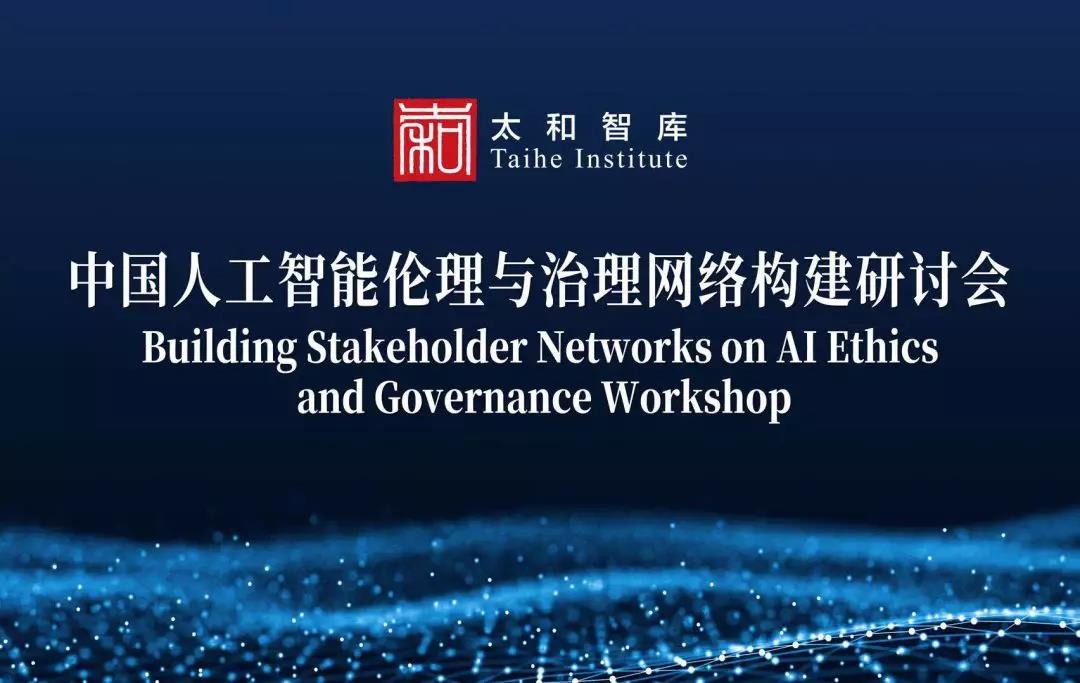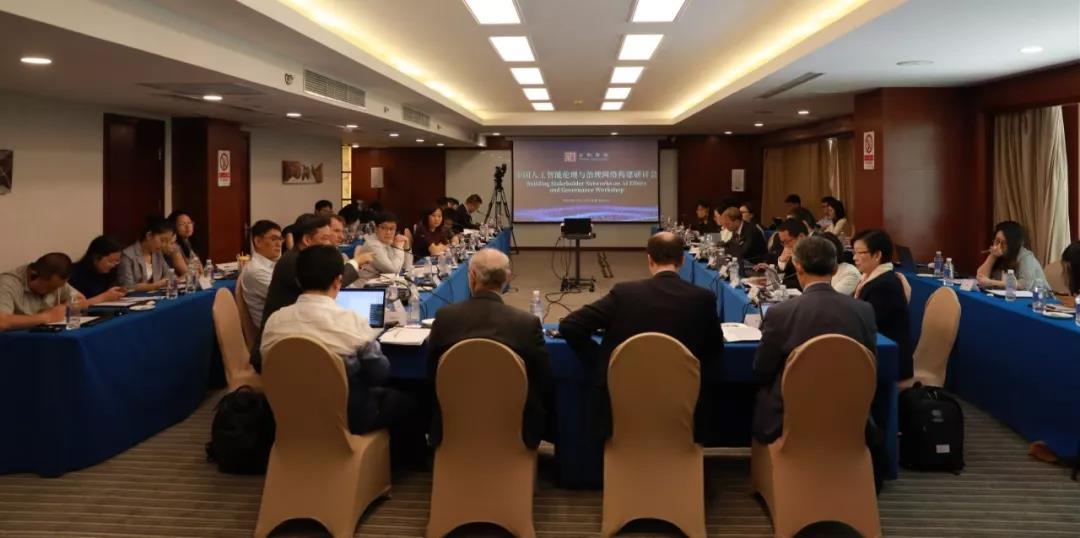
On 21st May 2019, the Taihe Institute held a workshop on “Building Stakeholder Networks on Artificial Intelligence (AI) Ethics and Governance” in Beijing. Around 30 experts from China, the United States, and Europe shared their insights on AI ethics and governance, the emergence of stakeholder networks in China and internationally, and discussed the need for the development of a global AI governance mechanism.
There was consensus amongst the participants that AI, on the one hand, has the potential to increase significantly productivity and efficiency across many industries and sectors, on the other, it will cause severe disruptions during the transition that will be felt in every aspect of the economy, society, government, security, and geopolitics. AI may trigger new global threats, posing a challenge to international security and global governance. AI will increase cybersecurity and data privacy risks, and even might cause and intensify economic and geopolitical tensions.
The disruption will be first felt and rather rapidly within the area of work. Based on classical labor theory, there is a distinction between those who work and those who make decisions. To increase productivity and efficiency, the former dimension has always been objective of rationalization. Now, still at the beginning of the digital revolution, smart automation, and the automation of automation, will increasingly compete with the human faculty of knowledge and decision-making, which remained distinct from technology in the past. Nowadays the boundary between execution and planning has blurred tremendously, but this will only increase the impact, first targeting repetitive human tasks but then increasingly competing with more complex activities that usually depend on both implicit and explicit knowledge.
Like climate change, AI is a global trend and needs global collaboration and oversight. Participants emphasized that no single country will be able to ensure that AI will serve society and the greater good. AI’s novelty, fast-paced development, and all-encompassing impact already creates broad uncertainties and challenges traditional models of oversight and regulation. To ensure that such a disruptive technology serves humanity in the long run, public and private stakeholders have begun addressing major ethical and regulatory questions. AI is a global trend, but regulation is commonly bound to national and regional laws and jurisdictions, which creates a lack of international oversight, coordination, and best-practice sharing, as well as a lack of considering regional and cultural differences concerning the perceived opportunities and risks associated with AI. Furthermore, the term governance encompasses not merely governmental policies, but also addresses challenges through industry standards, laboratory practices and procedures, and technological solutions.

This is why the workshop focused on the development of an international governance framework for artificial intelligence, but without being naive to assume the international community can achieve consensus on all issues. There are already various national and international organization, including the UN, OECD[1], the EU, the World Economic Forum, IEEE[2], ISO[3], PAI[4] and other industry-initiated consortia, research centers, and representatives of civil society that have begun working on standards and best practices. Over 60 overlapping value propositions and frameworks to direct the development of AI have been published. However, to date, none of those frameworks addresses all issues and no mechanisms exist to coordinate and share the activities of all the various stakeholders.
In addition to the Beijing workshop, two high-level planning meetings have been held in New York and Geneva for the initiative to develop such governance framework and host the first International Congress for the Governance of AI (ICGAI). As the development of such international framework is needed and can help to supersede a raising anti-globalization and nationalist sentiment, Taihe Institute will continue to support this endeavor.
Annotations:
—————————————————————
FOCUS ON CONTEMPORARY NEEDS.
Should you have any questions, please contact us at public@taiheglobal.org